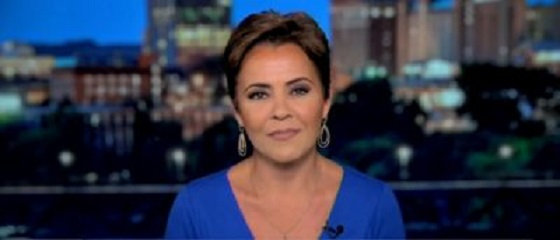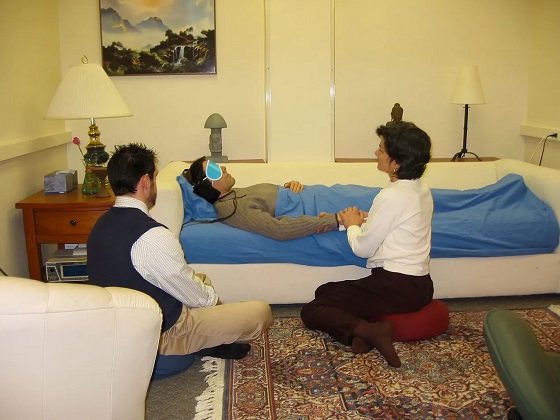News
PC Leadership Hopeful Starke Proposes Plan To Defeat NDP

By Sheldon Spackman
One of four men seeking to lead Alberta’s PC Party to victory in the next provincial election, is proposing an alternative approach to defeating the NDP in 2019. Vermillion-Lloydminster MLA Richard Starke says he has a better option to defeat the current government in two years, rather than merging the PC’s and Wildrose as fellow leadership candidate Jason Kenney has suggested.
Starke says through a release that “Albertans tell me that they want a real change in the Alberta government but do not necessarily like the risky 5-point Unity power grab.” Adding, “Today, I am introducing a proposal that would see Progressive Conservatives and Wildrose working together on a Common Sense Plan; Alberta’s conservative parties collaborating to eliminate the risk of vote splitting in the next election. This Common Sense Plan could include:
- Both parties would fight the 2019 election from positions of strength with a common goal – defeating the NDP.
- Both parties would continue to work as separate but collaborating entities – two parties, two leaders, two caucuses.
- Giving Albertans an option to ensure that there will be no splitting of conservative votes in the next election.”
Starke says Kenney’s plan to dissolve the PC’s and Wildrose and create one new right-wing party instead, is too risky. He says with the next provincial election only two years away, it’s frankly not enough time to start a new party from scratch and be ready for an election. He says his Common Sense Plan preserves two political parties that want to remain. Adding however, that the two parties still need to talk about it, which hasn’t happened yet. As far as vote splitting is concerned, Starke says “There are mechanisms that could be employed to make sure that doesn’t happen”.
Starke goes on to say “It has become apparent that the Progressive Conservative Leadership race is no longer just about selecting the best leader for the Party, but it has changed into who can defeat the NDP in 2019. I believe strongly that Alberta needs to be governed from the centre-right, and that the NDP cannot see another term in office.”
Starke also says “One of the hallmarks of leadership is to listen, and to respond. I have been listening to Albertans who are desperate to see the end of the NDP government. But I have also listened to Progressive Conservative and Wildrose members who do not want to see their parties destroyed. Many have told me they support “unity” because they believe it is the only way to defeat the NDP.”
Starke adds, “I have stated unequivocally throughout the campaign that the 5-point Unity proposal will not work as it depends on the rushed destruction of two existing political parties and other complicated, high risk political maneuvers. It will result in a second NDP term in office. Working together in collaboration rather than competition is the most effective way to defeat the NDP while avoiding the major upheaval of both parties proposed by Jason Kenney.” The two other PC Leadership hopefuls include Byron Nelson and Stephen Khan.
A Leadership Town Hall is taking place in Grande Prairie on Friday, January 27th, with a Leadership Debate in Medicine Hat February 1st. The Leadership Convention and Vote happens in Calgary March 17th, 2017.
Media
Top Five Huge Stories the Media Buried This Week

NEERA TANDEN: “The military requires accountability. It’s the most accountable organization. You are supposed to be accountable to higher-ups. Politics isn’t supposed to have to do with any of this, and the fact that that’s happening, that they’re just basically saying nothing to do here, is a big problem, I think, for those who believe in accountability.”
@ScottJenningsKY: “I think Republicans aren’t interested in any lectures on accountability in the military after the Biden administration. I mean, the bar for getting rid of a Secretary of Defense is apparently pretty high. You can get 13 people killed and go AWOL and not tell the commander in chief, and that’s not a fireable offense.”
“But these lectures about accountability and national security after letting 10 million people into the country who raped and murdered and committed violent acts and no remorse or accountability.”
NEERA TANDEN: “What are you talking about? They closed the border.”
#4 – Bill Gates says we won’t need humans “for most things.”
During an appearance on The Tonight Show, Jimmy Fallon asked Gates a pretty direct question: “Will we still need humans?”
Gates responded, “Not for most things. We’ll decide … There will be some things that we reserve for ourselves, but in terms of making things and moving things and growing food, over time those will be basically solved problems.”
VIDEO: @TheChiefNerd
REP JORDAN: “Is NPR biased?”
MAHER: “I have never seen any political bias.”
JORDAN: “In the DC area, editorial positions at NPR have 87 registered Democrats and 0 Republicans.”
MAHER: “We do not track the voter registration, but I find that concerning.”
JORDAN: “87-0 and you’re not biased?”
MAHER: “I think that is concerning if those numbers are accurate.”
JORDAN: “October 2020, the NYPost had the Hunter Biden laptop story, and one of those 87 Democrat editors said, ‘We don’t want to waste our readers and listeners’ time on stories that are just pure distractions.’ Was that story a pure distraction?”
Video + Transcript via @Kanekoathegreat
While you’re here, don’t forget to subscribe to this page for more weekly news roundups.
#2 – Utah becomes the first state to officially BAN fluoride in all public drinking water.
For decades, fluoride was accepted as a safe way to prevent tooth decay. Few questioned it.
But last year, in a dramatic legal twist, a federal judge ruled that fluoride may actually lower children’s IQ—and cited evidence that could upend everything we thought we knew.
That ruling sent shockwaves through the public health world.
Judge Edward Chen pointed to scientific studies showing a “high level of certainty” that fluoride exposure “poses a risk” to developing brains.
He ordered the EPA to reexamine its safety standards, warning that the margin for safety may be far too narrow.
At the center of the case: dozens of peer-reviewed studies linking everyday fluoride exposure—even at levels found in U.S. tap water—to reduced intellectual capacity in children.
It wasn’t just one paper. The National Toxicology Program, a branch of the U.S. government, also concluded that higher fluoride levels were “consistently associated” with lower IQ in kids.
They flagged 1.5 mg/L as a risk threshold. Some communities hover right near it.
In response to the growing evidence, Utah passed HB 81, banning all fluoride additives in public water.
The law takes effect May 7. It doesn’t ban fluoride completely. Anyone who wants it can still get it—like any other prescription.
And that’s the point: Utah’s lawmakers say this is about informed consent and personal choice.
This issue is no longer on the fringe. Across the country, cities and towns are quietly rethinking water fluoridation—and some have already pulled out. Utah is the first state to take bold action. It may not be the last.
The conversation surrounding fluoride has shifted from “Is it helpful?” to “Is it safe?” And for the first time in nearly a century, that question is being taken seriously.
VIDEO: @TheChiefNerd
#1 – RFK Jr. Drops Stunning Vaccine Announcement
Kennedy revealed that the CDC is creating a new sub-agency focused entirely on vaccine injuries—a long-overdue shift for patients who’ve spent years searching for answers without any support from the government.
“We’re incorporating an agency within CDC that is going to specialize in vaccine injuries,” Kennedy announced.
“These are priorities for the American people. More and more people are suffering from these injuries, and we are committed to having gold-standard science make sure that we can figure out what the treatments are and that we can deliver the best treatments possible to the American people.”
For years, the vaccine-injured have felt ignored or dismissed, as public health agencies refused to even acknowledge the problem. Now, there’s finally an initiative underway to investigate their injuries and to provide support.
Thanks for reading! This weekly roundup takes time and care to put together—and I do my best to make it your go-to source for the stories that matter most but rarely get the attention they deserve.
If you like my work and want to support me and my family and help keep this page alive, the most powerful thing you can do is sign up for the email list and become a paid subscriber.
International
‘Lot Of Nonsense’: Kari Lake Announces Voice Of America Is Dumping Legacy Outlets


From the Daily Caller News Foundation
By Hailey Gomez
Special Adviser for the U.S. Agency for Global Media (USAGM) Kari Lake announced Friday that Voice of America (VOA) will terminate its contracts with The Associated Press, Reuters, and Agence France-Presse.
VOA, an international broadcasting state media network, is funded by USAGM, with former President Joe Biden requesting in March 2024 a budget increase for the 2025 fiscal year to further support the radio network. In an X post on Friday, Lake announced USAGM will end its “expensive and unnecessary newswire contracts,” adding that some of the major agreements included “tens-of-millions of dollars in contracts” with AP News, Reuters and Agence France-Presse.
“USAGM is an American taxpayer funded News Organization with an 83-year history. We should not be paying outside news companies to tell us what the news is—with nearly a billion-dollar budget, we should be producing news ourselves,” Lake wrote. “And if that’s not possible, the American taxpayer should demand to know why.”
During a meeting with VOA staffers Friday, employees were reportedly told to “stop using wire service material for their reports,” according to Newsmax. Notably, audio, video, and text reports have often been used to supplement coverage from locations where reporters are not present, the outlet reported.
In an interview with Newsmax prior to the official contract cuts, Lake discussed how the agency was finding “a lot of nonsense that the American taxpayer shouldn’t be paying for.”
“Today, I started the process of terminating the agency’s contracts with the Associated Press, Reuters, & the Agence France-Presse. This will save taxpayers about 53 million dollars. The purpose of our agency is to tell the American story. We don’t need to outsource that responsibility to anyone else,” Lake wrote in an X post regarding the interview.
Disputes between The AP and the White House began in February after the corporate media outlet was revoked press access for refusing to call the Gulf of America by its new name. The AP filed a lawsuit on Feb. 21 against White House Press Secretary Karoline Leavitt, Chief of Staff Susie Wiles, and Deputy Chief of Staff Taylor Budowich for injunctive relief.
Lake was sworn in as USAGM’s special adviser on March 3, saying she’s “looking forward” to serving America and “streamlining” the agency. The cuts from the agency follow President Donald Trump’s push for his second administration to review the government’s wasteful spending.
-

 2025 Federal Election1 day ago
2025 Federal Election1 day agoWEF video shows Mark Carney pushing financial ‘revolution’ based on ‘net zero’ goals
-

 Crime2 days ago
Crime2 days agoFirst Good Battlefield News From Trump’s Global War on Fentanyl
-

 2025 Federal Election1 day ago
2025 Federal Election1 day agoMORE OF THE SAME: Mark Carney Admits He Will Not Repeal the Liberal’s Bill C-69 – The ‘No Pipelines’ Bill
-

 2025 Federal Election1 day ago
2025 Federal Election1 day ago‘Coordinated and Alarming’: Allegations of Chinese Voter Suppression in 2021 Race That Flipped Toronto Riding to Liberals and Paul Chiang
-

 Break The Needle1 day ago
Break The Needle1 day agoWhy psychedelic therapy is stuck in the waiting room
-

 2025 Federal Election1 day ago
2025 Federal Election1 day agoThree cheers for Poilievre’s alcohol tax cut
-

 2025 Federal Election1 day ago
2025 Federal Election1 day agoDon’t let the Liberals fool you on electric cars
-

 Opinion2 days ago
Opinion2 days agoSome scientists advocate creating human bodies for ‘spare parts.’
















